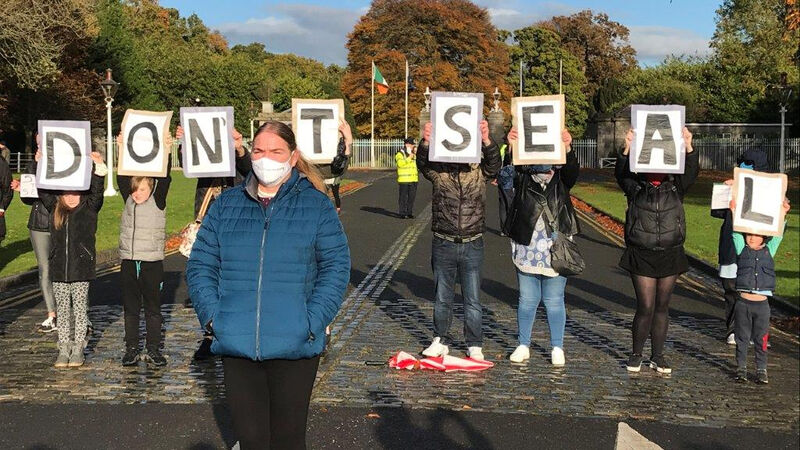State must do more to vindicate rights of Mother and Baby Homes survivors

Majella Connolly (front), an adoptee from the St Patrick's Mother and Baby Home in Dublin, joins protesters outside Aras an Uachtarain, Dublin, after President Michael D Higgins signed the Bill into law.
The fundamental problem with the Government’s handling of last week’s legislation that did nothing to stop the Mother and Baby Homes Commission’s archives from being sealed for 30 years is that it perpetuates the suffering of survivors.
It did so through the abject failure of the Minister Roderic O'Gorman to engage constructively with survivors in advance of passing legislation that affects them – perpetuating exclusion. It did so by failing to properly recognise the right to access information about personal history and identity – perpetuating a culture of secrecy. And it did so by once again demonstrating a failure by the State to take full responsibility for assisting survivors in their search for truth - perpetuating the lack of an adequate remedy for State-sponsored abuse.













